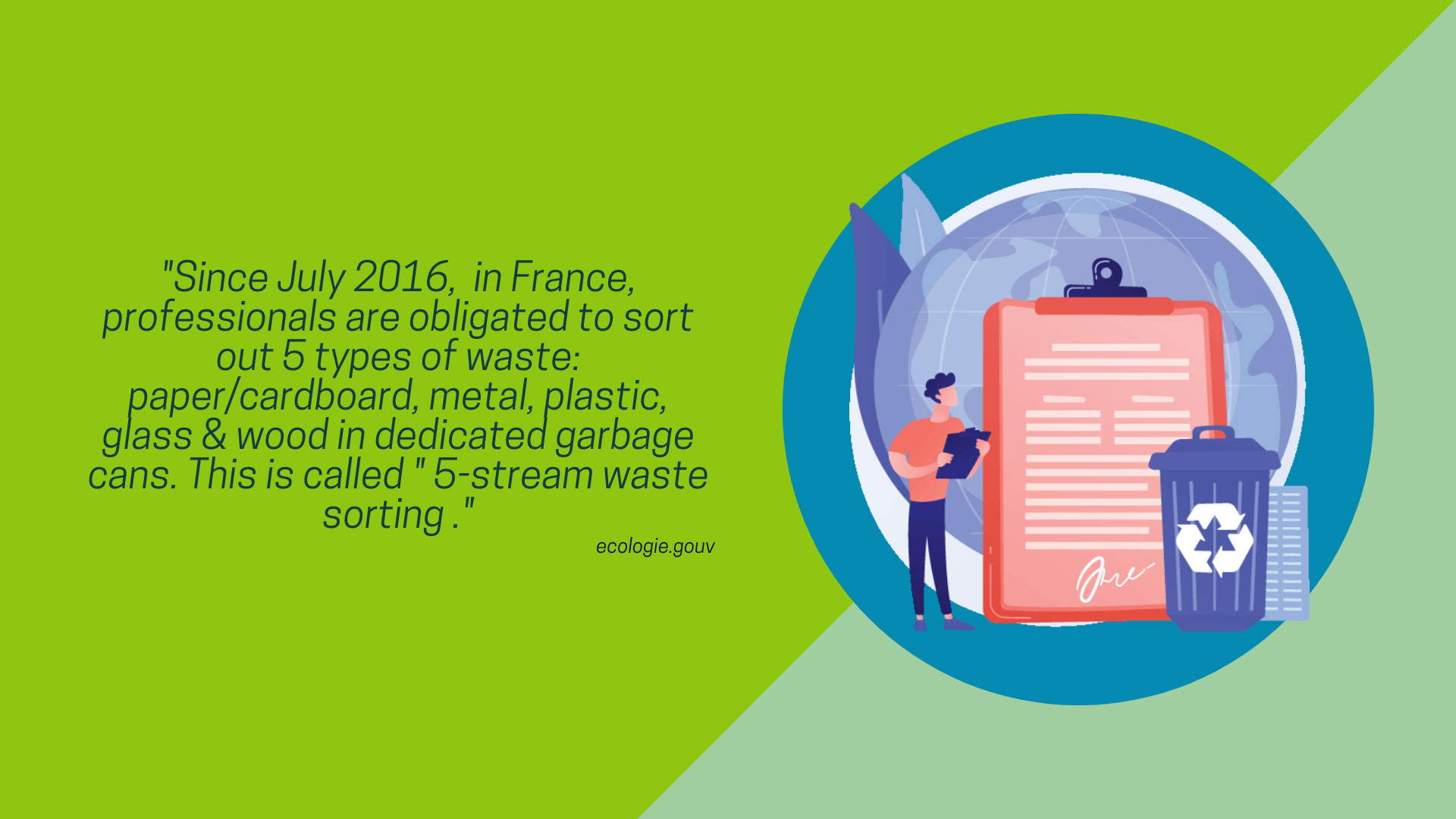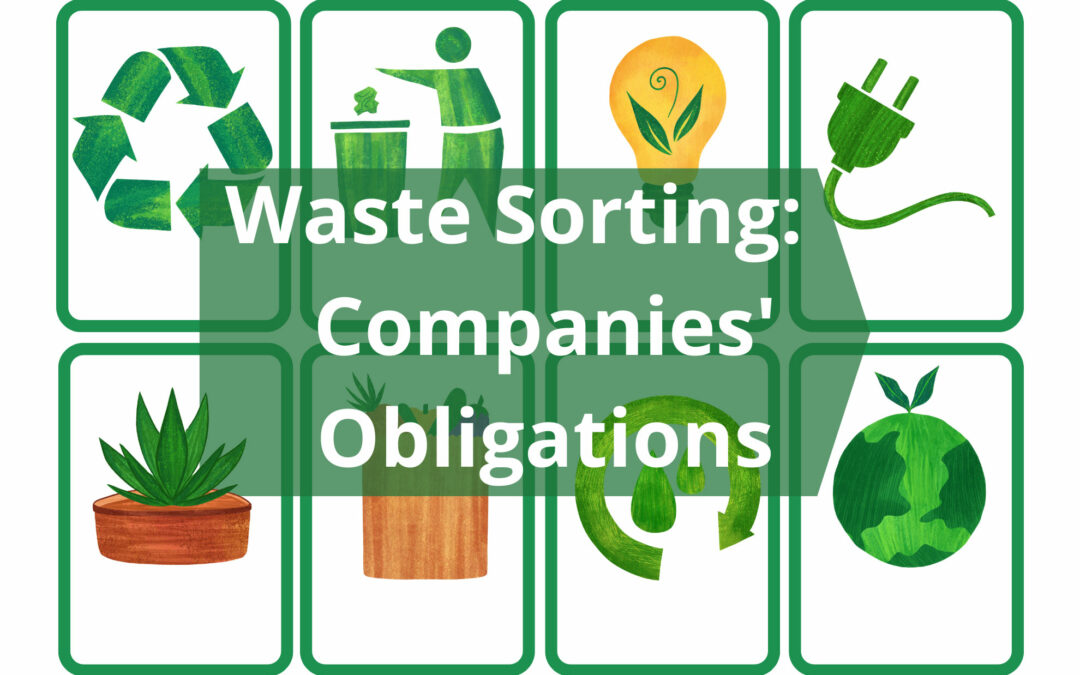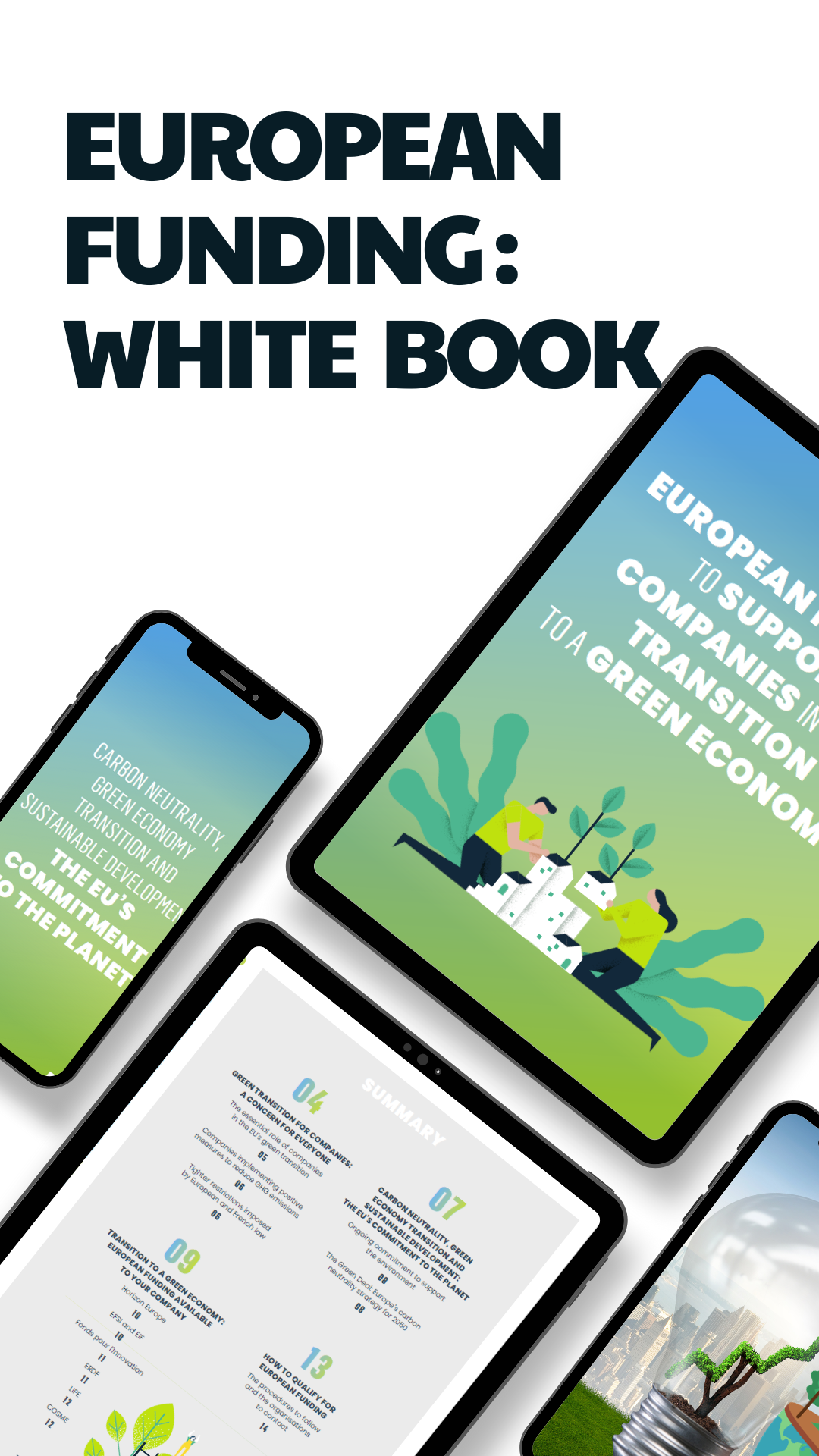In 2018, more than 342 million tonnes of waste were generated in France – almost 90% of it from the industrial, agricultural and tertiary sectors – resulting in the depletion of natural resources, soil and water pollution and greenhouse gas emissions…
Sorting waste at source is part of the now inevitable circular economy, with the aim of recycling and recovering this waste. For companies, craftsmen, shopkeepers and other public bodies, regulations are becoming stricter, making it compulsory to sort 9 waste streams.
What is the 5-stream decree? Who is affected? What are a company’s waste management obligations? What are the penalties for non-compliance? Answers.
Whitepaper European Funding for Ecological Transition
This whitepaper provides an overview of European funding
schemes available to make your company more environmentally friendly, in addition to guidance on the different European programmes and their relevant national and regional contacts.
5-stream sorting: an obligation for professionals
Coming into force on July 1, 2016, the French 5-stream decree requires companies to sort at source and collect separately the 5 waste streams of paper/cardboard, metal, plastic, glass and wood.
Since July 2021, French decree no. 2021-950 includes mineral fraction and gypsum waste (“7 streams“) from the construction sector (in application of article 74 of the French Law Anti-Waste for a Circular Economy) and will incorporate an 8th stream from January 1, 2025: textile waste.

Previously only applicable to businesses producing more than 10 tonnes of biowaste per year, from January 1, 2023, the sorting of biowaste will apply to all businesses generating more than 5 tonnes. As of December 31 this year, this threshold will disappear, obliging all producers and holders of biowaste to sort this 9th stream at source.
Who is affected by the 5-stream decree and its changes ?
All waste producers and holders (companies, businesses, craftsmen, administrations, local authorities, etc.) – with the exception of those listed on page 4 of the Frequently Asked Questions published by the Prevention and Risks Department of the French Ministry of Ecological Transition in October 2022 – are obliged to sort their waste at source if they are collected by a private service provider, or if they produce more than 1,100 liters of waste per week collected by the public service.
What are the regulations on source separation ?
As all companies are responsible for the waste they produce, in line with the polluter-pays principle, they are obliged to manage it, or have it managed, from production to recovery or disposal. This is known as “extended producer responsibility” or EPR.
This means that they must also organize the selective sorting of waste from some of the products they put on the market (batteries, electrical and electronic equipment, packaging, oils, medicines, etc.), so that it can be collected and sent for recycling or recovery.
Similarly, operators of establishments receiving the public are obliged to organize the separate collection of all waste produced by the public they receive and their staff (article L541-21-2-2 of the Environment Code). To this end, separate collection systems must be made available to the public. These will obviously have to include bio-waste by December 31, 2023 and, where applicable, textiles by 2025.
Penalties for non-compliance with waste sorting obligations
Companies are required to sort their 9 waste streams at source. In the event of non-compliance, the companies concerned may be ordered to make the necessary adjustments. Refusal to comply may result in an administrative penalty of up to €150,000 (5° of article L541-3 of the French Environment Code). Failure to comply with these obligations may also constitute a criminal offence punishable by up to two years’ imprisonment and a €75,000 fine (8° of article L541-46 of the Environment Code).
Regulations are constantly evolving. To avoid any legal risk, it’s best to keep abreast of developments: the environmental law information website (aida.ineris.fr) and that of the French Ministry of Ecological Transition are invaluable tools in this respect.
Selective sorting: part of a CSR approach
To encourage sustainable development and the circular economy, regulations governing waste sorting by professionals are becoming stricter. The sorting obligations, which initially concerned 5 waste streams, are gradually being extended to include 9 streams by January 2025.
Waste reduction, recycling and recovery must now be anchored in new, innovative practices. Taking environmental issues into account is an integral part of our corporate social responsibility (CSR) approach.




